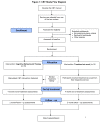Cognitive behaviour therapy (CBT) for anxiety and depression in adults with mild intellectual disabilities (ID): a pilot randomised controlled trial
- PMID: 21492437
- PMCID: PMC3102627
- DOI: 10.1186/1745-6215-12-95
Cognitive behaviour therapy (CBT) for anxiety and depression in adults with mild intellectual disabilities (ID): a pilot randomised controlled trial
Abstract
Background: Several studies have showed that people with intellectual disabilities (ID) have suitable skills to undergo cognitive behavioural therapy (CBT). Case studies have reported successful use of cognitive behavioural therapy techniques (with adaptations) in people with ID. Modified cognitive behavioural therapy may be a feasible and effective approach for the treatment of depression, anxiety, and other mood disorders in ID. To date, two studies have reported group-based manaulised cognitive behavioural treatment programs for depression in people with mild ID. However, there is no individual manualised programme for anxiety or depression in people with intellectual disabilities. The aims of the study are to determine the feasibility of conducting a randomised controlled trial for CBT in people with ID. The data will inform the power calculation and other aspects of carrying out a definitive randomised controlled trial.
Methods: Thirty participants with mild ID will be allocated randomly to either CBT or treatment as usual (TAU). The CBT group will receive up to 20 hourly individual CBT over a period of 4 months. TAU is the standard treatment which is available to any adult with an intellectual disability who is referred to the intellectual disability service (including care management, community support, medical, nursing or social support). Beck Youth Inventories (Beck Anxiety Inventory & Beck Depression Inventory) will be administered at baseline; end of treatment (4 months) and at six months to evaluate the changes in depression and anxiety. Client satisfaction, quality of life and the health economics will be secondary outcomes.
Discussion: The broad outcome of the study will be to produce clear guidance for therapists to apply an established psychological intervention and identify how and whether it works with people with intellectual disabilities.
Trial registration: ISRCTN: ISRCTN38099525.
References
-
- Smiley E. Epidemiology of mental health problems in adults with learning disability: an update. Advances in Psychiatric Treatment. 2005;11:214–22. doi: 10.1192/apt.11.3.214. - DOI
-
- Deb S, Thomas M, Bright C. Mental disorder in adults with intellectual disability. 1: Prevalence of functional psychiatric illness among a community-based population aged between 16 and 64 years. Journal of Intellectual Disability Research. 2001;45(6):495–505. doi: 10.1046/j.1365-2788.2001.00374.x. - DOI - PubMed
-
- Butz M, Bowling JB, Bliss CA. Psychotherapy with the mentally retarded: A review of the literature and the implications. Professional Psychology, Research and Practice. 2000;31:42–47. doi: 10.1037/0735-7028.31.1.42. - DOI
Publication types
MeSH terms
Associated data
LinkOut - more resources
Full Text Sources


